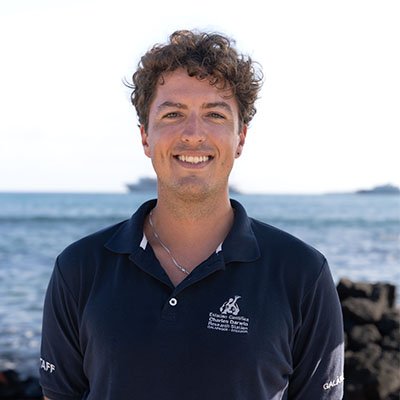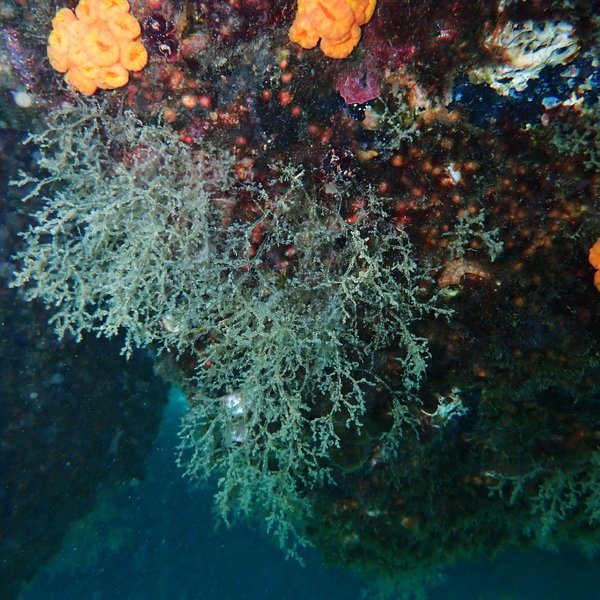
William Bensted-Smith
Investigator
William Bensted-Smith has been with the Marine Invasive Species and Subtidal Ecological Monitoring Projects since November of 2019. Part of his work focuses on predicting the propagation of introduced species into and within the Galapagos Marine Reserve (GMR) through particle tracking models recreating the movement of their larvae, as well as using ocean models to predict and study the potential effects of climate change over the coming years. The particle tracking work has extended to working on models predicting plastic flow in the ETP. He is also involved in managing and analysing the datasets of the Subtidal Ecological Monitoring of the GMR, whilst in the field he collects the data on reef fish.
He completed his undergraduate degree of BSc Physics with Hons. at the University of Exeter in 2018 and continued his studies with an MSc in Physical Oceanography at Bangor University the following year. His MSc thesis was based on recreating the historical spread of an invasive barnacle species in the Irish Sea using a particle tracking model, from which the skills learned have proved very useful in his current field of work.
William's programs

Ocean
Marine biodiversity researchThe introduction of alien species is arguably the most important driver of biodiversity loss for oceanic islands. Our work seeks to evaluate the effects of alien invasive species, climate change, and other anthropogenic pressures on the biodiversity of the Galapagos Marine Reserve and the Eastern Tropical Pacific in order to better sustain coastal communities and prevent marine species extinction.




